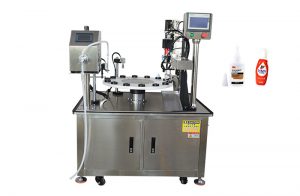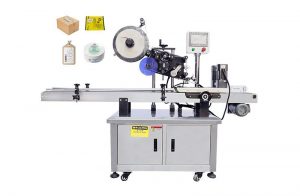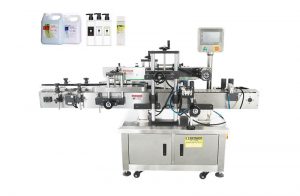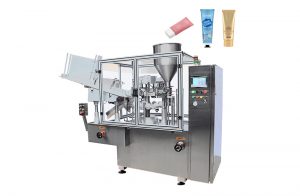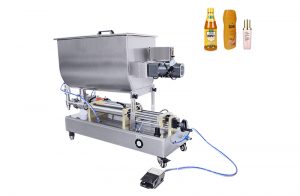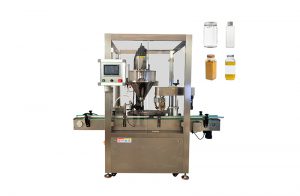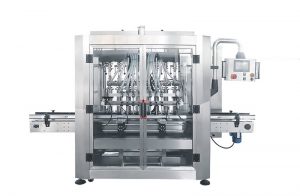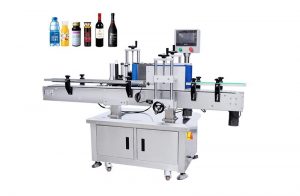In the world of industrial packaging and filling, a volumetric filling machine plays a crucial role. These machines are designed to fill containers with a precise volume of product, ensuring consistency and accuracy across all filled units. Volumetric filling machines are commonly used in various industries, including food and beverage, pharmaceuticals, cosmetics, and chemicals, due to their efficiency and reliability.
Working Principle
Volumetric filling machines operate on the principle of displacing a fixed volume of product into containers. The fundamental components include a metering device, filling nozzles, and a mechanism to control the volume of product dispensed.
There are several types of volumetric fillers, each suited to specific applications:
Gravity Fillers:
These machines rely on gravity to transfer the product from a holding tank to the container. They are ideal for free-flowing liquids with low viscosity, such as water or light oils.
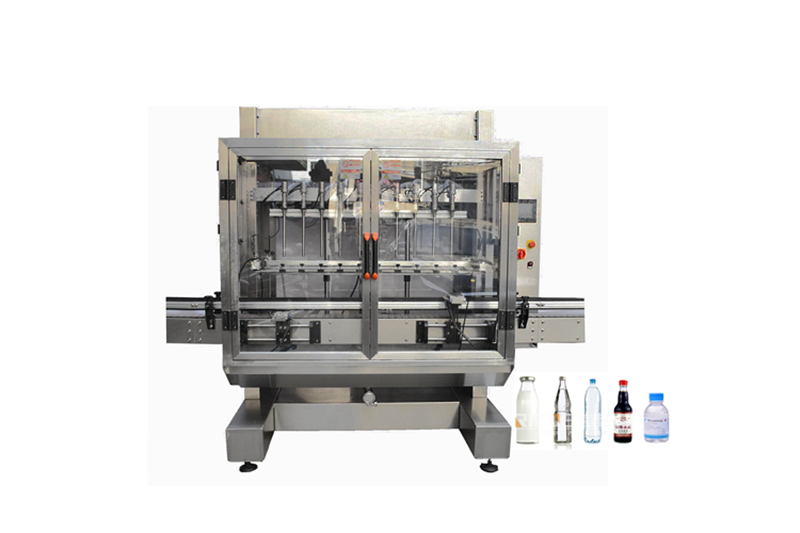
Piston Fillers:
Piston filling machines use a piston to draw the product into a cylinder and then dispense it into the container. They are versatile and can handle a wide range of viscosities, from thin liquids to thick pastes and creams.
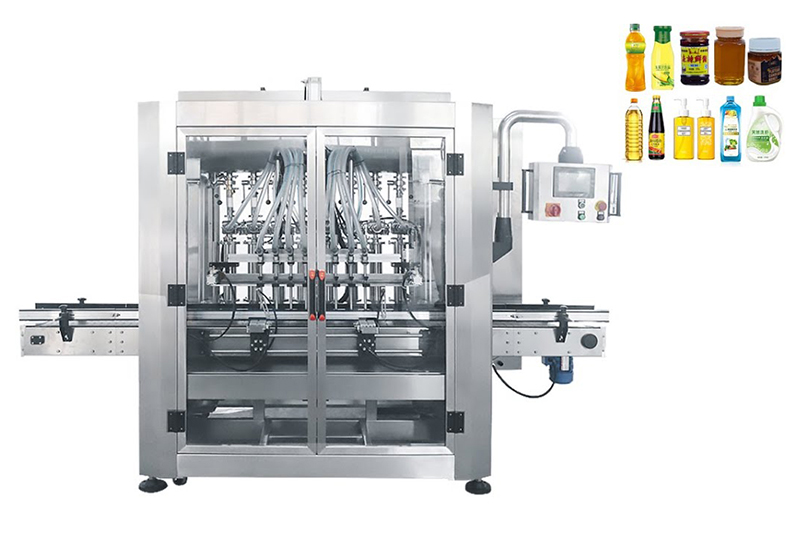
Vacuum Fillers:
Vacuum filling machines use a vacuum to draw the product into the filling chamber and then dispense it into containers. These are particularly effective for thick or foaming products, ensuring precise and controlled fills.
Rotary Fillers:
Rotary fillers use a rotating carousel with multiple filling heads to fill containers as they move through the machine. This design is excellent for high-speed production lines.
Peristaltic Fillers:
These machines use a peristaltic pump mechanism, where a tube is compressed to push the product through. This method is gentle on the product, making it suitable for delicate or shear-sensitive liquids.
Key Features and Advantages
Volumetric filling machines offer several advantages that make them indispensable in industrial applications:
Accuracy and Precision: These machines are known for their high level of accuracy, which is essential for maintaining product consistency and quality control.
Flexibility: They can handle a wide variety of container shapes and sizes, making them adaptable to different production requirements. This flexibility extends to the types of products they can fill, from liquids to semi-solids.
Efficiency: Volumetric fillers can significantly increase production speed and efficiency, reducing the time and labor required for filling operations.
Ease of Operation: Modern volumetric filling machines are designed to be user-friendly, with features like programmable logic controllers (PLCs) and touch-screen interfaces that simplify setup and operation.
Sanitary Design: Many volumetric fillers are designed with food safety and sanitation in mind, featuring easy-to-clean surfaces and enclosed filling mechanisms to prevent contamination.
Applications
Volumetric filling machines are used in a wide range of industries:
Food and Beverage: Filling products like sauces, jams, beverages, and dairy products.
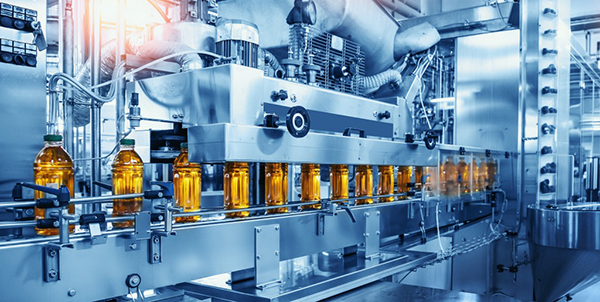
Pharmaceuticals: Accurate filling of medicines, syrups, and ointments.

Cosmetics: Packaging creams, lotions, and other beauty products.

Chemicals: Filling household and industrial chemicals, such as detergents, acids, and oils.

Considerations for Choosing a Volumetric Filling Machine
When selecting a volumetric filling machine, several factors need to be considered:
Product Characteristics:
The viscosity, density, and foaming properties of the product will influence the choice of machine. For instance, piston fillers are ideal for thick products, while gravity fillers work well for thin liquids.
Production Volume:
The scale of production will determine whether a manual, semi-automatic, or fully automatic machine is needed. High-speed production lines may benefit from rotary or multiple-head piston fillers.
Accuracy Requirements:
The required level of filling accuracy and consistency will impact the choice of machine. High-precision applications might necessitate advanced features like weight-based or time-based filling mechanisms.
Budget:
The cost of the machine and the available budget will also play a significant role in the decision-making process. It’s essential to balance initial investment with long-term operational benefits and efficiency gains.
Conclusion
Volumetric filling machines are essential tools in modern production and packaging operations, offering unparalleled accuracy, efficiency, and versatility. By carefully selecting the appropriate type of volumetric filler based on product characteristics and production needs, businesses can enhance their operational efficiency and product quality.

